Thai scientists race to develop homemade COVID-19 vaccine amid second wave of infections
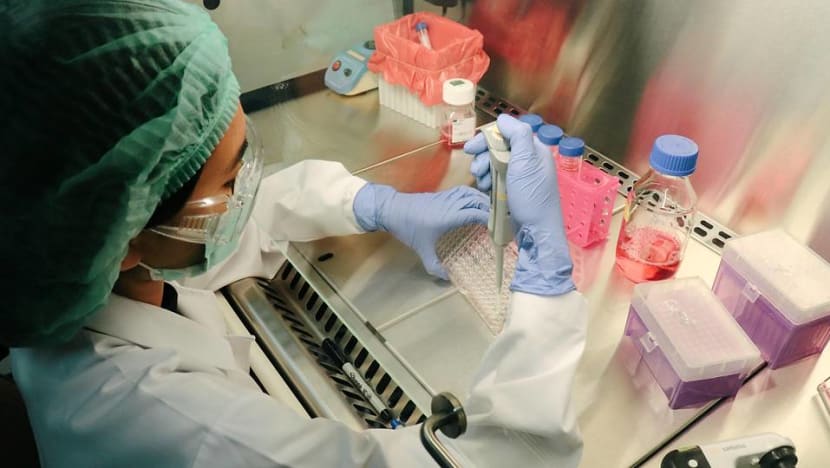
ChulaCov19 is a vaccine that is being developed by the Medicine Faculty of Chulalongkorn University in Thailand to fight the COVID-19 pandemic. (Photo: Chula VRC)
BANGKOK: As the Thai government races to secure more COVID-19 vaccines from various sources, a group of medical scientists is preparing for the first clinical trial of a home-grown cure they are developing to fight the pandemic.
In April, they expect to inject 72 volunteers aged between 18 and 75 with ChulaCov19 – a vaccine that is being developed by the Medicine Faculty of Chulalongkorn University in Bangkok to fight the infectious disease.
“We’ll inject our first volunteer in April, probably around the end of the month. Within two months, we should know the results of Phase 1, which will show what appropriate dosages will be,” said Kiat Ruxrungtham, professor of medicine and director of Chulalongkorn University’s vaccine research centre – Chula VRC.
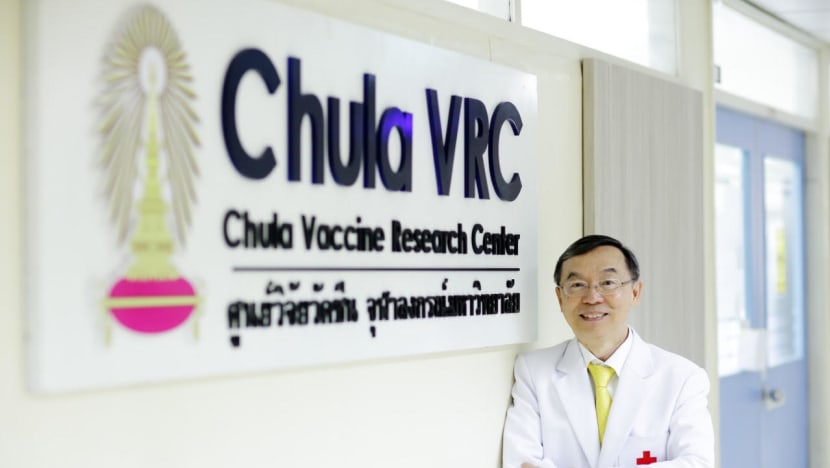
Globally, there are several types of vaccine technologies being used for COVID-19. ChulaCov19 employs Messenger RNA or mRNA, which enables the body to produce a protein that triggers an immune response to the virus.
The technology is used by leading pharmaceutical companies such as Moderna, Pfizer and BioNTech. They have released data backed by large-scale clinical trials indicating that their vaccines are more than 90 per cent effective in preventing the disease in humans.
Other types include viral vector technology, which is used by AstraZeneca and Oxford University, and inactivated vaccines such as CoronaVac by China's Sinovac Biotech.
“We chose mRNA because we believe it is a technology of the future. It has also been proven that this technology developed the fastest and reported 94 per cent to 95 per cent efficacy in humans, which is the highest rate,” Kiat told CNA.
His team expects to complete Phase 1 in June. They will then move on to Phase 2 and later Phase 2B with 600 and 5,000 volunteers respectively. If all goes as planned, Kiat added, ChulaCov19 could be manufactured in Thailand by the end of this year.
“We’re doing two things in parallel. We’re hiring factories overseas to produce the vaccine for testing in volunteers and at the same time preparing a factory in Thailand for manufacture by the end of this year,” he said.
READ: Thai leader threatens punishment for false COVID-19 vaccine news
THAILAND AIMS TO SECURE 63 MILLION COVID-19 DOSES
Discussion about COVID-19 vaccines has intensified in Thailand, following a new wave of local transmission that started in a shrimp market near Bangkok in December.
Earlier, the country was praised by World Health Organization director-general Tedros Adhanom Ghebreyesus for its “comprehensive approach” to contain the pandemic, with months of zero transmission locally. But the situation changed after the outbreak at the seafood market, followed by new clusters in different parts of Thailand.
Since Dec 15, the health ministry has reported more than 3,700 new infections of COVID-19. Hundreds of confirmed cases have since been added almost daily to the nation’s tally, which exceeded 12,600 on Wednesday (Jan 20).
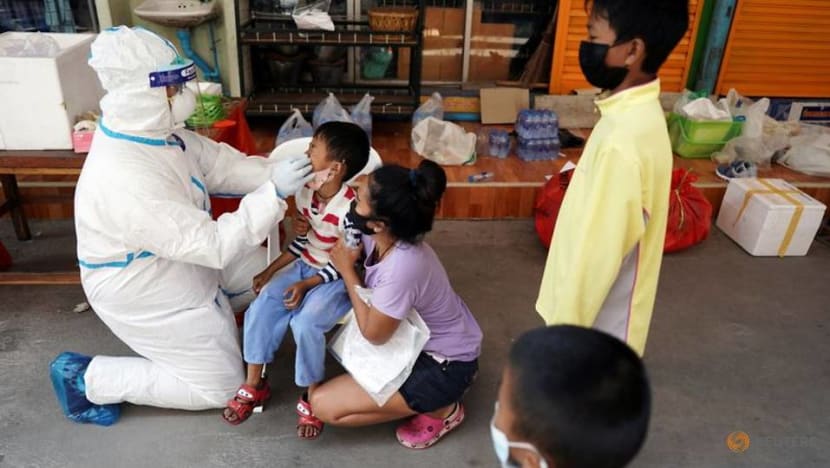
READ: New wave of COVID-19 infections in Thailand shines spotlight on employment situation of foreign workers
The new wave of local transmission has caused public concern and put pressure on the Thai government to secure sufficient vaccines for the nearly 70 million population. According to Prime Minister Prayut Chan-o-cha, Thailand has ordered 28 million doses of COVID-19 vaccines from two foreign manufacturers so far.
The first 2 million doses will be supplied by China’s Sinovac Biotech between February and April. Twenty-six million other doses will be provided by AstraZeneca-Oxford to immunise more people in June.
“The government has already ordered 26 million doses for 13 million people in risk groups first. We have also asked to buy 35 million more doses to cover more people,” the prime minister said in a Facebook post on Jan 15.
“In order to stop the spread, at least 50 per cent of the population has to be vaccinated, or even better, 70 per cent. To vaccinate 50 per cent of the population or 33 million people, for instance, we’ll require 66 million doses,” he added.
Looking ahead, the government aims to secure 63 million doses of COVID-19 vaccines from Sinovac Biotech and AstraZeneca-Oxford within this year. The latter also supports Thailand’s local manufacture of its vaccine through a technology transfer to a royally-owned pharmaceutical firm Siam Bioscience, which will produce 200 million doses of AstraZeneca-Oxford anti-COVID19 vaccine per year for Thailand and other countries.
READ: Thailand defends royal company's role in COVID-19 vaccine strategy
"BUILDING A FOUNDATION" FOR THE FUTURE
Meanwhile, Chula VRC is pressing on with its vaccine development with financial support from the government and donors. According to Kiat, the research programme aims to enable Thailand to produce its own vaccine, better prepare for future outbreaks and eventually become a vaccine manufacturer.
“If there are more COVID-19 outbreaks in the next two to three years, we’ll tackle it with speed,” he told CNA.
“We won’t be afraid next time. This technology will enable us to develop vaccines for other diseases such as dengue, allergies and cancer. We’re building a foundation so that we won’t have to just sit and wait to buy vaccines but sell them ourselves.”
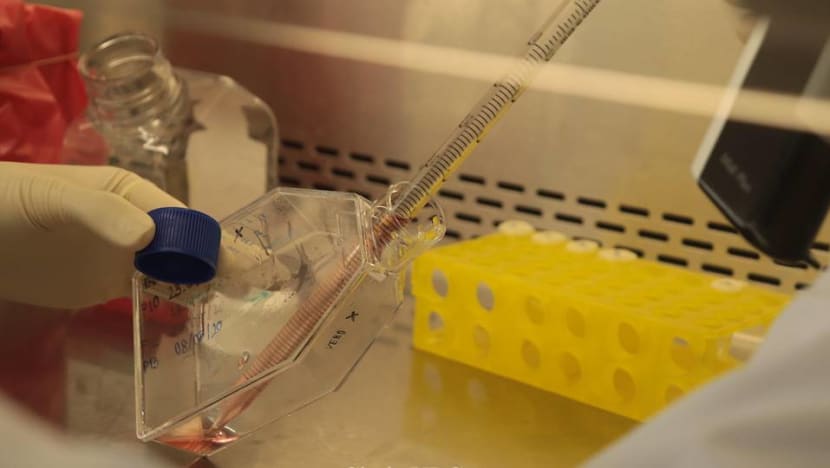
According to Kiat, Chula VRC expects to manufacture 5 million doses of its COVID19 vaccine by the end of this year and 20 million to 30 million doses annually in the following years. The centre also plans to reach out to vulnerable groups in the country such as migrant workers who are not registered in the employment system to help them access COVID-19 vaccine.
In addition to the mRNA COVID-19 vaccine, Kiat said other types are also being developed in Thailand by different groups of researchers such as the COVID-19 plant-based vaccine by start-up Baiya Phytopharm.
Thailand expects to roll out its vaccination programme for the general public next month. According to director-general of the Disease Control Department Opas Karnkawinwong, the programme is divided into three phases and each recipient will receive two doses of the vaccine free of charge.
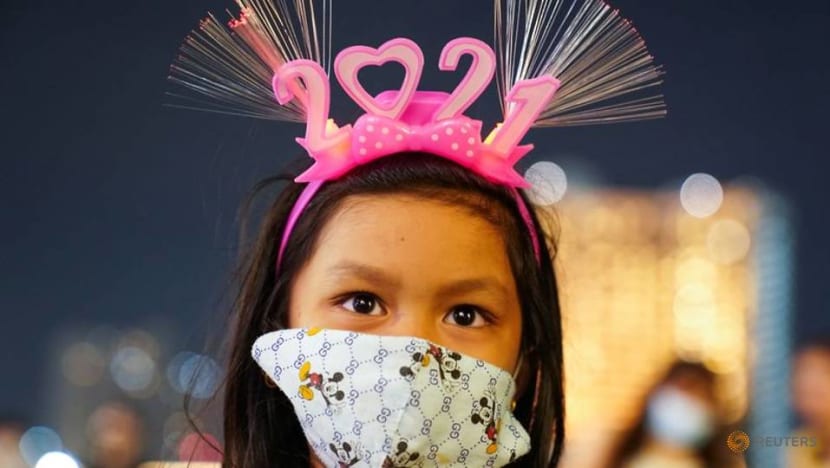
The first phase is scheduled to take place between February and April and include 2 million doses for 1 million recipients.
The vaccine will be given to risk groups in five provinces with high levels of infection, namely Samut Sakhon, Chonburi, Rayong, Chanthaburi and Trat. Recipients will include medical personnel, health officials and volunteers, authorities who work to control the pandemic, people aged 60 and over, and those with chronic diseases.
The second phase will follow in May and June, when 26 million doses of vaccine are expected to be distributed to 13 million recipients in vulnerable groups nationwide. The third stage is set to take place between the end of this year and early 2022.
During this period, the government said it will try to immunise as many residents as possible to develop herd community and stop the spread of COVID-19.
BOOKMARK THIS: Our comprehensive coverage of the coronavirus outbreak and its developments
Download our app or subscribe to our Telegram channel for the latest updates on the coronavirus outbreak: https://cna.asia/telegram














